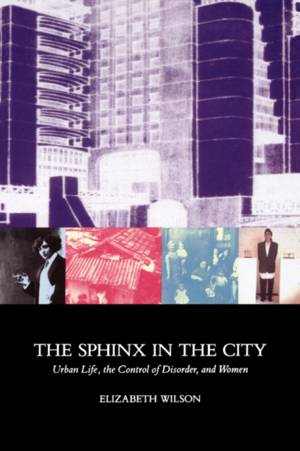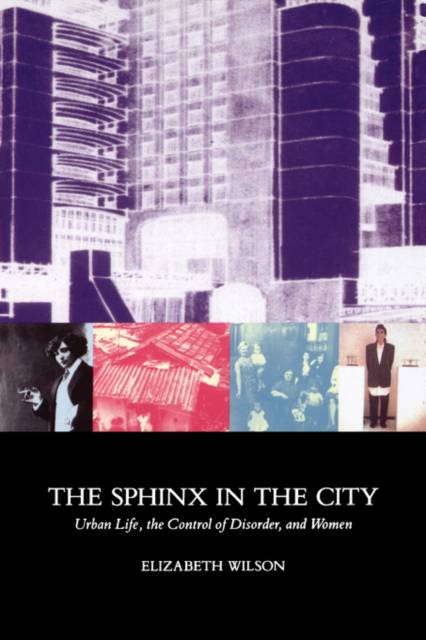
- Afhalen na 1 uur in een winkel met voorraad
- Gratis thuislevering in België vanaf € 30
- Ruim aanbod met 7 miljoen producten
- Afhalen na 1 uur in een winkel met voorraad
- Gratis thuislevering in België vanaf € 30
- Ruim aanbod met 7 miljoen producten
Zoeken
Sphinx in the City
Urban Life, the Control of Disorder and Women
Elizabeth Wilson
Paperback | Engels
€ 54,45
+ 108 punten
Omschrijving
Elizabeth Wilson's elegant, provocative, and scholarly study uses fiction, essays, film, and art, as well as history and sociology, to look at some of the world's greatest cities-London, Paris, Moscow, New York, Chicago, Lusaka, and São Paulo-and presents a powerful critique of utopian planning, anti-urbanism, postmodernism, and traditional architecture. For women the city offers freedom, including sexual freedom, but also new dangers. Planners and reformers have repeatedly attempted to regulate women-and the working class and ethnic minorities-by means of grandiose, utopian plans, nearly destroying the richness of urban culture. City centers have become uninhabited business districts, the countryside suburbanized. There is danger without pleasure, consumerism without choice, safety without stimulation. What is needed is a new understanding of city life and Wilson gives us an intriguing introduction to what this might be.
Specificaties
Betrokkenen
- Auteur(s):
- Uitgeverij:
Inhoud
- Aantal bladzijden:
- 191
- Taal:
- Engels
Eigenschappen
- Productcode (EAN):
- 9780520078642
- Verschijningsdatum:
- 10/03/1992
- Uitvoering:
- Paperback
- Formaat:
- Trade paperback (VS)
- Afmetingen:
- 152 mm x 229 mm
- Gewicht:
- 362 g

Alleen bij Standaard Boekhandel
+ 108 punten op je klantenkaart van Standaard Boekhandel
Beoordelingen
We publiceren alleen reviews die voldoen aan de voorwaarden voor reviews. Bekijk onze voorwaarden voor reviews.











